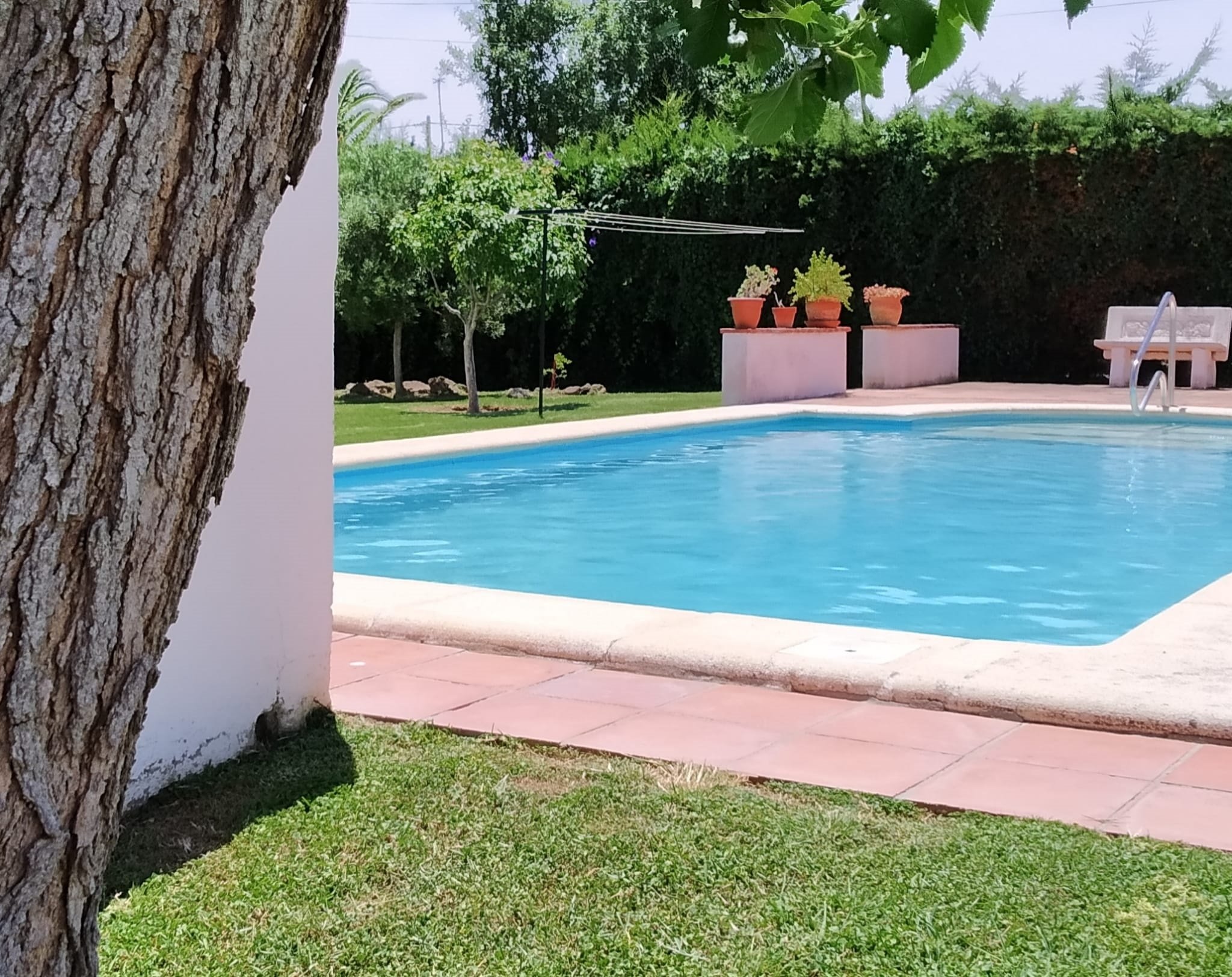Preparations for a Catalan summer that could be long, hot - and above all, dry. That is what the government of the Generalitat has moved to foresee this Tuesday as it has approved a decree-law on urgent measures to respond to Catalonia's three year drought, incorporating new tools agreed with the municipalities and economic sectors. Among the measures, one change will enable swimming pools classified locally as "climate shelters" to be kept open; a second prepares to regulate the contributions that privately-installed portable desalination plants could make to the system; while a third measure sets water consumption maximums for tourist accommodation establishments - specifically, so that they match the limits on water usage asked of Catalonia residents.
"Climate shelters" and swimming pools
Regarding the rules on swimming pools, up till now, under Emergency status - which since February has applied to most of metropolitan Barcelona and the Catalan coast - the current plan only allows swimming pools to be filled and refilled for use by federated sports and in exceptional cases, such as therapeutic use. However, with the slight recovery in reserves in the reservoirs of the Catalan internal basins and, after submissions from the main municipalities associations asking the executive to relax the restrictions, the Catalan government has decided on some modifications to ensure that some swimming pools are open during the summer.
The response, as spokesperson Patricia Plaja explained, has been to clarify the concept of "climate shelter", which municipalities will be able to introduce into their drought emergency plans. In the current context of increasingly frequent and extreme heat waves, the decree law seeks to ensure that the most vulnerable population has access to municipal facilities for public use, to be able to obtain some respite in periods of extreme temperatures. Thus, a swimming pool could be declared a climate shelter by the competent local administration if in the municipality, neighbourhood or district this facility is essential to guarantee a space to reduce the effect of high temperatures on the public.
Swimming pools that act as climate shelters may be public, but they may also be privately owned that have an agreement with the city council to be of public use, open to citizens under the same conditions as public swimming pools. These pools listed as climate shelters may be refilled using the quantities necessary to guarantee the sanitary quality of the water, as long as additional saving measures are applied to compensate for the water used. The government spokesperson gave as an example of privately-owned swimming pools the pools of tourist facilities such as campsites or hotels and also shared apartment building pools.
Plaja reiterated that, in this latter case, all other shared apartment pools - for example, those belonging to neighbouring buildings - that is, those not considered climate shelters by the competent local authority, will not be able to be filled. She also clarified that, when speaking of privately-owned pools that had the potential to be a climate shelter, she was referring only to pools whose normal use would be shared by a community, such as in a hotel or a private sports centre, never a pool that a family has at home, which under the current emergency status applying in most of coastal Catalonia, cannot be refilled.
Limits on tourists' water use
The second specific change included in today's decree-law has to do with the setting of consumption thresholds for tourist accommodation establishments, and making them equivalent to the domestic water consumption for residents of Catalonia. Until now, the Special Drought Plan has only specified maximum consumption allowances as municipal averages (200 litres per inhabitant per day on average under Emergency status). However, this figure includes not only domestic consumption but also all the uses that are made within a municipality - even possible losses from the supply network.
Under the new measure, Catalonia's special drought plan now introduces, for the first time, specific maximum consumption levels per person for tourist accommodation establishments, which are equivalent to the consumption that locals are entitled to: 115 litres per person under Exceptional drought status; 100 litres per person in Emergency or Emergency Phase I status (applying in the Ter-Llobregat system which includes much of coastal Catalonia) and 90 litres per person in the more extreme Emergency Phase II (applying in parts of the Alt Empordà county). In municipalities where the maximum allocations established in the drought plan are exceeded for three consecutive months, consumption limitations based on the aforementioned thresholds will be mandatory for the tourist accommodation establishments located there.
This measure, according to the government, is being taken because practically all tourist accommodation establishments are connected to distribution networks under the same supply conditions as homes (guarantee of quality, pressure, continuous service), and, although they are not for purely domestic uses, they are currently treated with the highest use priority over other uses such as industrial, agricultural or livestock.
Private desalination plants
The third measure in today's package relates to the proposals made by some private agents to install portable desalination plants to ensure that they can provide sufficient water for their own needs. This is the case, for example, of the coastal resort of Lloret de Mar, where the local Hotel Guild, in cooperation with the municipal council, announced in March that it was considering such an installation during the months of this summer, with dozens of firms reportedly ready to make use of it. Specifically, the change made by the Catalan decree-law creates a special regime to regulate the contributions of water resources that such privately-owned portable desalination plants make to the system.

